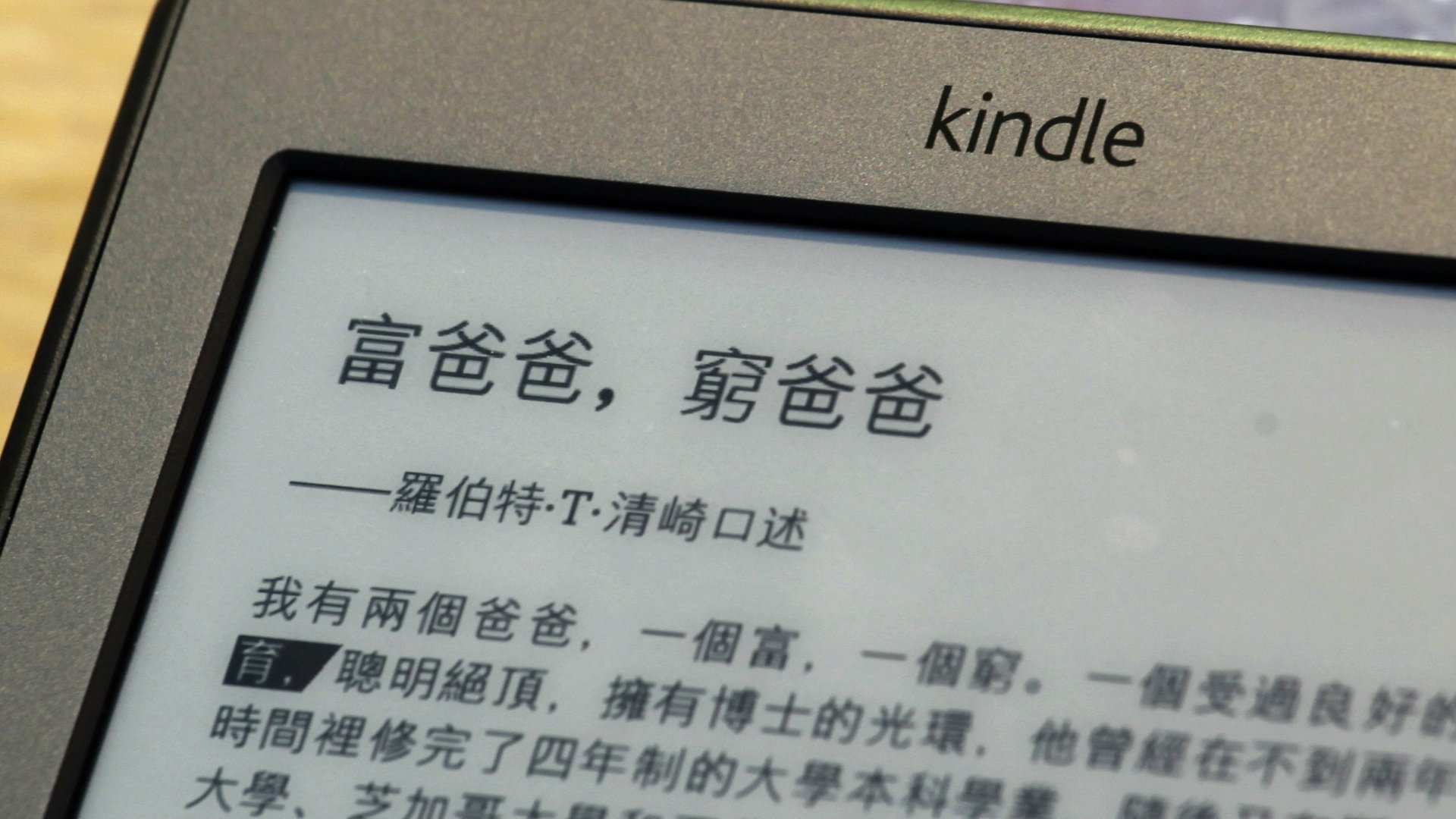Amazon has quietly released a customized Kindle just for China—where nobody uses Amazon
Yesterday Amazon announced the release of a special version of the Kindle E-reader tailored for China. As with almost anything Amazon does in China, one question looms: Why bother?


Yesterday Amazon announced the release of a special version of the Kindle E-reader tailored for China. As with almost anything Amazon does in China, one question looms: Why bother?
Available only in China, the new device works much like any other Kindle, with one key customization: In addition to holding titles from Amazon, it also lets users shop at Migu, a popular e-book store run by state-owned China Mobile, the nation’s largest telco. Like Amazon, Migu offers over 400,000 titles.
Included with the new reader is a one-year subscription to the Amazon Prime free-shipping service, which the Seattle-based company launched in China last year.
Amazon remains a giant in the US, where it’s brought malls and grocery stores to their knees. But in China, it’s almost a non-player, albeit a persistent one. The company has technically been operating there since 2004, when it acquired online bookstore Joyo.com (founded by Lei Jun, who went on to create smartphone maker Xiaomi). But domestic e-commerce sites like Alibaba’s Tmall have dwarfed it for years. In 2016, Amazon’s market share in business-to-consumer e-commerce was a mere 0.8%.
Despite this, the company remains up and running in China, where it’s intermittently released new features and services in recent years. In December 2015 it announced it would sell more foreign electronics to Chinese consumers eager to buy high-end brands. One year later it launched Amazon Prime—a puzzling move given the company’s low market share and delivery time of five to nine days, which is much slower than Amazon Prime in the US and competing services by Chinese rivals.
Kindles have been on sale in the country since 2013, and e-books from Amazon since 2012, when the company launched an e-book store just for China, complete with international and domestic titles. When asked about it, Amazon did not tell Quartz the exact number Kindle devices it has sold in China to date, but says sales hit the “millions” in 2016.
It’s difficult to know what Amazon’s ambitions are for China, both at large and for its Kindle division. E-books have swept China as ordinary writers eschew traditional publishers and put their works directly online. But competition is already fierce: Giants like Alibaba, JD, Tencent, and the IMDB-esque Douban each have their own e-book marketplaces, which offer a mixture of domestic and international titles. The one backed by Tencent, China Reading, is preparing for an IPO this year in Hong Kong that could raise $800 million.
Meanwhile, research suggests that sales of e-reader devices in China have been shrinking, not growing. In 2011 approximately 23.2 million e-readers shipped in China, but that figure shrank to 7.1 million in 2016 (link in Chinese), according to Chinese media outlet Jiemian, citing data from research firm Qianzhan.
So what’s the upside for Amazon? Partnering with China Mobile, a state-owned enterprise, might help Amazon’s Kindle get into the telco’s retail outlets. But it could also serve as a political signal that the company is willing to work with the government. Partnerships and joint ventures are often necessary in order for foreign companies to operate legally and with minimal bureaucratic interference in China. A small tie-up like this one could reap larger dividends if Amazon’s business in China gets bigger. For now, though, those hopes remain distant.
This piece has been amended to include Amazon’s statement on Kindle sales in China.